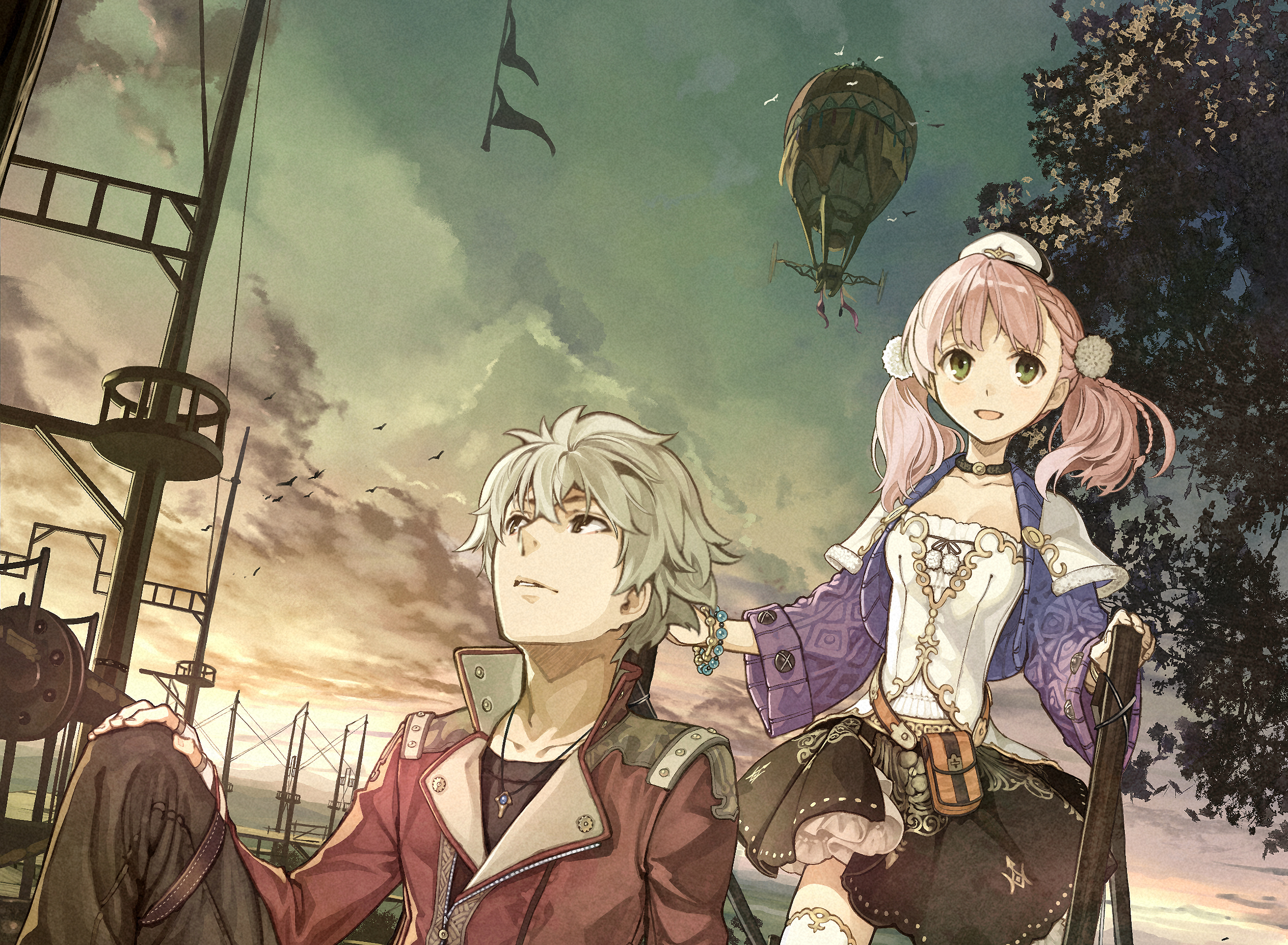12DOVE Verdict
Pros
- +
Charming to the nth degree
- +
Completed side quests feel like genuine accomplishments
- +
Deep
- +
addictive alchemy system
Cons
- -
Combat is a bit too easy
- -
Moment-to-moment gameplay isn't the most exciting thing in the world
Why you can trust 12DOVE
I didn't realize it until now: all this time, RPGs have been teaching us about maximizing efficiency. The constant churn of side quests that parallel any main story arc collectively pose a question: What's the most effective way to complete these tasks without losing sight of your primary goal? Figuring out the path that wastes no time or in-game coin feels incredibly gratifying--and generating those moments of fulfillment is what Atelier Escha & Logy: Alchemists of the Dusk Sky is all about. This JRPG isn't the most exciting or revolutionary game of its kind, but it does an amazing job of delivering moments of self-gratification again and again.
The straight-out-of-an-anime opening movie introduces the two eponymous heroes: Escha [ess-ka], the innocent, bubbly alchemist-in-training, and Logy [lodge-ee], an aloof but kindhearted veteran from the big city. Rather than saddling you with a grand adventure right from the get-go, Atelier has you starting small: as government workers for the R&D department of Colseit, a rural town conveniently located in the center of monster-filled territory. The basic gameplay boils down to completing assignments on a four-month timetable, which includes tasks like monster extermination, material gathering, and alchemic item-creation (called Synthesis).
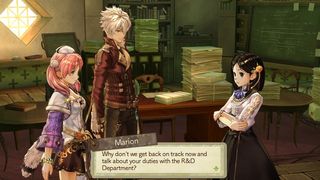
If you start Atelier expecting grandiose battles or tear-jerking romances, its seemingly ordinary premise might sound boring by comparison. Taken at face value, the elements that make up the opening hour will do little to change your mind, as you walk from cutscene to cutscene, read wordy tutorials, and come to grips with the straightforward, turn-based combat. The clear-cut introduction gives you time to appreciate Atelier's sights and sounds, which are all jovially cheery. Character models look great, but their stiff animations and spotty lip-syncing are less convincing. That's OK, because the voice acting (English or Japanese, which you can swap between on the fly) and serene music are pleasantly endearing, and the 3D world you explore makes up for its fragmented design with picturesque looks and a subdued-but-pleasing color palette.
And like most JRPGs, good things--in the form of constant feelings of productivity and accomplishment--come to those that can endure the opening stretch. Once you've absorbed how all the individual systems work, they combine to form a mural of a part-laid-back, part-stressful race against the passage of time. You're free to enjoy the story at your own pace because days don't elapse during cutscenes or combat. But gathering or synthesizing new items can take a while--and to get your tasks done on schedule, you need to plan accordingly.
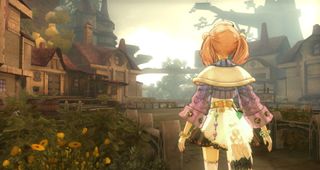
This is where that sensation of a constant need for efficiency comes into play, and I'd say that playing Atelier taught me more about good time management than a college education ever did. Your jobs are charted out on a tic-tac-toe-like grid, but you'll only reveal the outermost tasks once you've completed your primary objective for the trimester. This creates a nifty micromanagement of your quest log, forcing you to spin multiple plates and devise the best way to help everyone you can in the time allotted--time that you cannot reverse. At the end of each four-month cycle, you'll have to submit a report to your boss, which can be a gateway to funny in-game cutscenes and real-life anxiety alike. But hard work has redolent benefits: Slapping 100 percent completion stamps on your entire quest grid grants the same gleeful satisfaction as that time you got a gold star on your third-grade science project.
Once you've decided the best way to budget your time, the means to accomplishing your obligations, Synthesis and combat, are simple but enjoyable. The menu-based alchemy system is definitely the deeper of the two, where any and all items you find can be broken down, remade, or fused into new creations and recipes. Each step towards crafting an item is filled with depth, from the ingredients you choose to the order you add them, with special abilities available almost every step of the way. This all seems complicated, but Atelier eases you into its mechanics so that you're never overwhelmed--only intrigued by what might be possible to make next. It feels genuinely great to craft a tricked-out material, which you then use to create a souped-up weapon. The cycle of collect-create-collect is pretty darn addictive, once you dive into it.
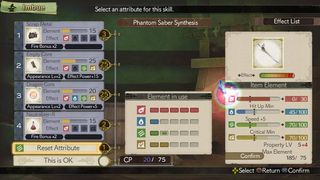
Combat doesn't offer the creative possibilities of Synthesis, but it's totally serviceable. Battles aren't random, which is nice, but you can put enemies on the back foot pretty consistently, which makes the combat feel a tad too easy. The wait-in-line management of Atelier's turn-based system gets spiced up by interplay between your six party members, letting you choose when to assist or defend and setting up some dazzling attack animations. Monster designs feel like the combat itself: a bit unsophisticated, but entertaining enough.
By the end, you'll be amazing at how connected you feel to Escha and Logy's journey, as well as the game mechanics themselves. Every aspect of Atelier, from its characters to its systems, is just so charming, making it easy to forgive core gameplay that sounds humdrum on paper. While this isn't the most pulse-pounding JRPG in existence, it's eminently accessible, and will provide dozens of hours' worth of laid-back fun for efficiency-minded gamers and buzzer-beating moments for procrastinators. At the end of the day, Atelier is all about completing a job well done, and feeling appropriately good about yourself for doing so.
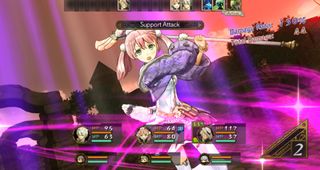
Atelier Escha %26 Logy makes time management fun, challenging you to maximize your efficiency if you want to help everyone in need. Its version of alchemy is inspiringly multifaceted, while the combat's basic but entertaining. If you can appreciate the simpler things in life, like a job well done, definitely give this JRPG a try.
More info
| Genre | Role Playing |
| Description | Play as Escha or Logy in this latest installment of the Atelier series. |
| Platform | "PS3" |
| US censor rating | "Everyone 10+" |
| UK censor rating | "" |
| Release date | 1 January 1970 (US), 1 January 1970 (UK) |
Lucas Sullivan is the former US Managing Editor of 12DOVE. Lucas spent seven years working for GR, starting as an Associate Editor in 2012 before climbing the ranks. He left us in 2019 to pursue a career path on the other side of the fence, joining 2K Games as a Global Content Manager. Lucas doesn't get to write about games like Borderlands and Mafia anymore, but he does get to help make and market them.
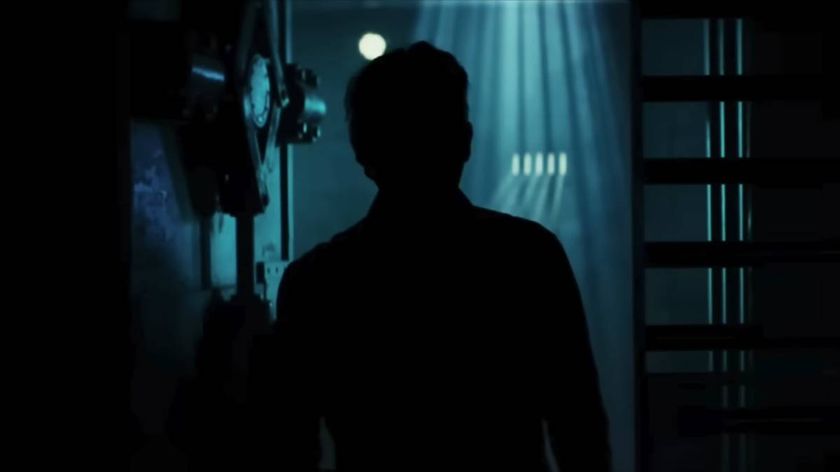
Captain America: Brave New World director hints at why and when The Leader's divisive look was changed

Despite Zelda: Majora's Mask basically being a horror game, one of its key devs didn't think its creepiest features were scary at all: "People on the team were like 'whoa!'"

Corsair exec says GTA 6 is coming to PC in early 2026 and then quickly un-says that
Most Popular





